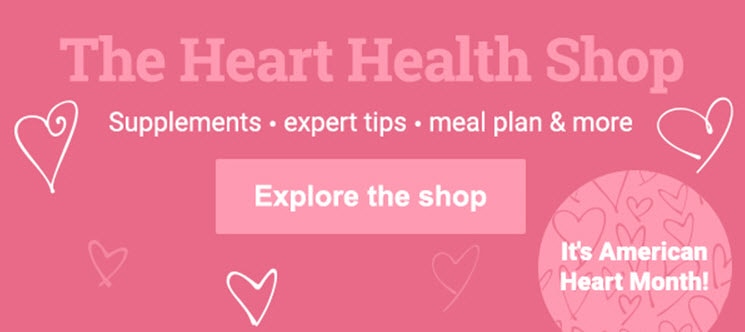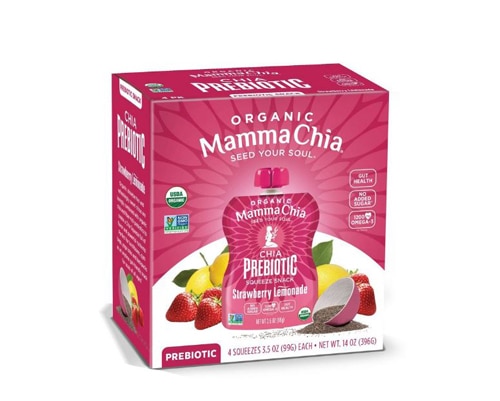Research is revealing an increasing number of connections between the
gut microbiome and the health of the rest of your body. The effect of
gut health on heart health is one of the most recent areas of focus.
Scientists are now looking into how microbiome balance and diversity may affect risk factors for heart disease. If there is a gut-heart connection, what role could
probiotics play in supporting cardiovascular health?

Probiotics and Heart Health
Discovering the gut-heart axis
In an
article published in the British Medical Journal, researchers Esther Forkosh and Yaron Ilan reviewed numerous studies of how the gut microbiome interacts with tissues and systems throughout the body. They concluded the microbiome’s influence “plays a role in the pathogenesis of atherosclerosis and heart failure.” In other words, what happens in your gut could be related to your risk of developing heart disease.
While a direct connection has yet to be proven, there appear to be strong correlations between gut microbiome activity and the processes that either support or undermine heart health. For example, microbes in the gut interact with your immune system and hormones, both of which play roles in key risk factors for heart disease—like
cholesterol levels and plaque formation.
Heart failure, cardiac injury and the microbiome
How does the interplay work? A pro-inflammatory environment can develop when the balance of bacteria in the gut tips in favor of pathogenic (“bad”) microbes.
Inflammation occurs as part of your body’s natural immune response to illness or injury, but inflammation that goes unchecked causes damage over time, including damage to your cardiovascular system.
Dysbiosis, intestinal permeability and inflammation
An imbalance in your gut microbiome can also harm your gut lining, making it more permeable. Sometimes called “leaky gut,” this permeability can allow proteins and microbes to pass into the bloodstream, triggering immune responses that lead to inflammation.
One easy way to prevent or break this cycle is to eat more high-fiber foods. High-fiber diets are associated with better balance in the gut, which in turn appears to
reduce blood pressure and prevent thickening of the heart muscle.
Metabolites: good guys and bad guys
Eating more
fiber feeds the microbes in your gut. As they break down what you can’t digest, they produce metabolites. Some, like short-chain fatty acids (SCFAs), build up and strengthen the gut lining to reduce permeability. A specific SCFA called acetate helps prevent dysbiosis, thereby protecting against pro-inflammatory pathogens.
However, not all metabolites have positive effects. Trimethylamine N-oxide (TMAO) has gotten a lot of attention recently due to its correlation with the development of atherosclerosis—plaquing in the arteries characteristic of heart disease. One reason for this may TMAO’s effects on how the body transports and metabolizes cholesterol, possibly leading to
immune cell changes that promote plaque formation.
SCFAs, on the other hand, appear to help control blood pressure, improve lipid balance and regulate blood sugar—
which lowers your risk for heart disease.
Can probiotics help your heart?
Since probiotics are associated with better gut health, is taking a high-quality probiotic supplement a smart move for heart health, as well?
There is some science to support the idea:
- In people with high cholesterol, the probiotic strains Lactobacillus plantarum and Lactobacillus reuteri may help bring numbers down to healthier levels†
- Lactobacillus reuteri shows promise for improving markers considered risk factors for heart disease, including lowering LDL (“bad”) cholesterol†
- High doses of specific probiotic strains may reduce blood pressure when taken in combination over a period of time†
Some probiotic bacteria work by binding cholesterol in the gut and preventing it from entering the bloodstream; others produce gut-strengthening SCFAs. However, not
all probiotics have shown similar benefits for heart health. This may explain why some studies show no cardiovascular benefit from taking probiotics—the researchers could have been looking at the wrong strains. More research is needed to understand how probiotic supplements could play a role in preventing the underlying causes of heart disease.
†
†These statements have not been approved by the Food and Drug Administration. These products are not intended to diagnose, treat, cure or prevent disease.
Supporting gut health for heart health
If only a few select probiotic bacteria have been shown to improve heart health, is investing in a supplement worth it?
Maybe.
According to an article from Ornish Lifestyle Medicine, a healthy ratio of “good” to “bad” microbes in the gut is about 80% to 85% good and 15% to 20% bad, and a growing body of scientific evidence shows microbial diversity also matters. Taking a probiotic has the potential to either improve or disrupt this balance, and it’s hard to know for sure whether you’ll personally experience benefits.
However, science has revealed one proven step you can take to improve both gut health and heart health: change your diet. A growing body of evidence shows eating more whole, unprocessed, high-fiber plant foods not only nourishes good gut bacteria but also lowers multiple risk factors for cardiovascular disease.
It’s not just the fiber feeding your gut bacteria and promoting SCFA production that does the trick. Eating more vegetables, fruits, whole grains, beans, legumes, nuts and seeds means you’re eating
less meat, dairy and processed foods—all of which are associated with inflammation and a greater prevalence of “bad” gut bacteria. By chowing down on whole foods, you crowd out some of the biggest enemies of heart health!
Try making dietary changes to reduce these risk factors before reaching for a probiotic. If you feel your gut could use a bit more help, look for products containing
Lactobacillus plantarum and
Lactobacillus reuteri to support both your microbiome and your cardiovascular system.
†
Remember that probiotics aren’t a substitute for medical care. Heart disease can be serious, so don’t try to self-medicate with supplements! See your doctor for regular checkups, including tests to monitor common markers for heart disease.
†These statements have not been approved by the Food and Drug Administration. These products are not intended to diagnose, treat, cure or prevent disease.







